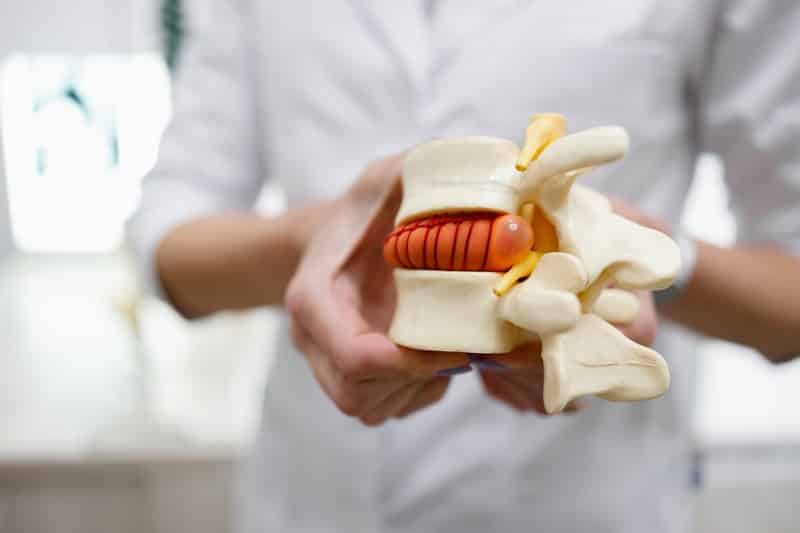Herniated Disk

A herniated or slipped disk occurs when the gel-like core located in the spine starts to push out and place pressure on different nerves. A slipped disk can be extremely painful (though the pain can vary), as the pressure on the nerve can cause all sorts of issues. Aside from pain, it can cause numbness and a tingling feeling all around where the nerve travels. As such, a herniated disk isn’t just something that can affect your middle back—it can also potentially affect various parts of your body. Fortunately, a herniated disk is something that eventually heals on its own. On average, 9 out of 10 people with a slipped disk will recover completely. The unlucky 10% might require surgery, though it depends on the severity of symptoms.
There are various causes for a herniated disk, which also matches (for the most part) the causes of middle back pain. In most cases, bed rest, pain management, and physical therapy are the solutions for middle back pain due to a herniated disk. If it continues to be an issue and doesn’t show many signs of recovery, it might be best to push for surgery.










